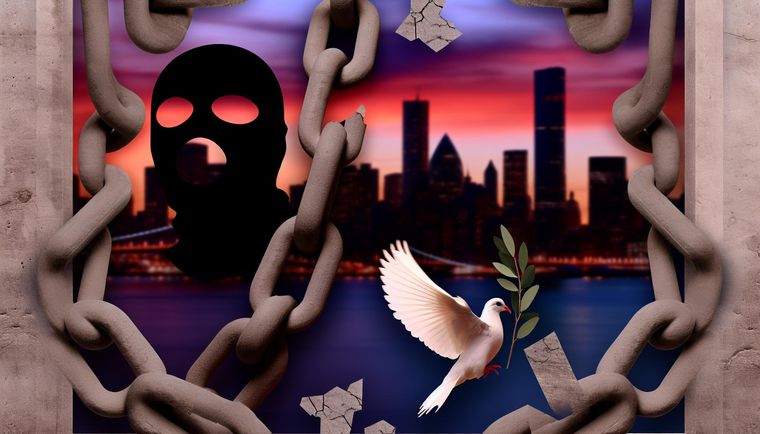Escalating Tensions: Recent Developments in Israel-Hamas Conflict and Hostage Crisis

The ongoing conflict between Israel and Hamas has taken a tragic turn, particularly with the recent discovery of six Israeli hostages killed while in captivity. As tensions intensify, Israeli Prime Minister Benjamin Netanyahu has faced mounting criticism for his government's handling of hostage negotiations, with the fate of many lives hanging in the balance.
In a poignant moment, Israel's President Isaac Herzog publicly apologized at the funeral of one of the slain hostages, Hersh Goldberg-Pollin, expressing regret over the failure to protect him and bring him home alive. Herzog's emotional plea underscores the distress felt by families of hostages who continue to suffer under the uncertainty and violence of the situation.
As the bodies of the hostages were found in an underground tunnel in Rafah, Israeli authorities revealed that the deceased had been shot shortly before their recovery. This brutal revelation has led to widespread outrage, prompting military and political leaders in Israel to vow revenge on Hamas. Netanyahu has asserted that Hamas will pay a high price for this heinous act, reflecting the urgent desire for accountability.
However, Netanyahu's decisions are not without controversy. Critics, including hostages' families, argue that his insistence on using military pressure rather than pursuing diplomatic avenues shows a disregard for the lives of the captured individuals. Netanyahu's political opponents have echoed these sentiments, calling for a ceasefire and negotiations, while large-scale demonstrations in major Israeli cities express public discontent with the government's current strategy.
In light of the public outcry, U.S. President Joe Biden has also called on Netanyahu to increase efforts toward facilitating the release of hostages. Biden, while expressing hope for a resolution, criticized Netanyahu's approach to negotiations with Hamas, further complicating diplomatic relations amid the crisis.
The situation is further complicated by a labor strike demanded by trade unions in Israel. They aim to increase pressure on the government to negotiate with Hamas, hoping to secure the release of remaining hostages. While a court has ordered an end to the general strike, the sentiment behind it reflects deep-seated grievances against the handling of the hostage situation and the broader conflict with Hamas.
Meanwhile, Hamas has issued threats, claiming control over the wellbeing of the hostages, which significantly raises the stakes of a potential military operation by Israel. As the armed group has updated their protocols regarding hostages amidst fears of rescue attempts, the situation remains precarious.
With Netanyahu firmly against withdrawing troops from key areas like the Philadelphia Corridor—an essential route for Hamas operations—the chances for effective negotiation remain slim. This strategic location has become a focal point of contention, illustrating the complex interplay of military and diplomatic challenges faced by Israeli leadership.
As the world watches the developments unfold, the tragic losses resonate deeply, not just for the families involved but for all those affected by the ongoing violence in this long-standing conflict. The imperative for action grows stronger, while the path to peace remains obscured by entrenched divisions and a cycle of retaliation.
Related Sources:
